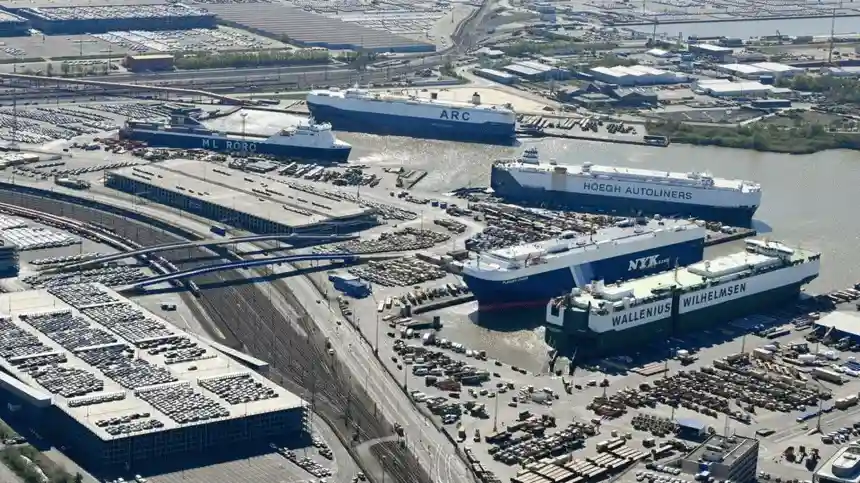China is shedding significance as a marketplace for German exporters, with knowledge exhibiting a gradual decline in its share of whole exports, a pattern set to proceed as Berlin and Beijing rethink their financial ties.
Regardless of hopes of a commerce increase after Beijing lifted pandemic restrictions, exports to China made up simply 6.2 % of whole German exports within the first half of the yr – the bottom share since 2016 – in accordance with knowledge from the German statistics workplace to which Reuters had entry on Friday..
After peaking at 7.9 % in 2020, the share of Germany’s exports going to China has been on a gradual decline, falling to 7.5 % in 2021 and to six.8 % in 2022.
China’s emergence as a market financial system within the 2000s offered an enormous increase to German firms and has proved an enormous contributor to the general well being of the German financial system since.
Regardless of hopes of a commerce increase after Beijing lifted pandemic restrictions, exports to China made up simply 6.2 % of whole German exports within the first half of the yr – the bottom since 2016
Nonetheless, this driver of progress for Europe’s largest financial system is about to lose steam within the coming years.
“For some years now, euro zone exports to China have not been rising quicker than total exports, and lately they’ve even been considerably weaker, which has weighed extra closely on Germany’s manufacturing sector than on that of its friends,” Commerzbank’s chief economist Joerg Kraemer mentioned.
One purpose for the slowdown is that progress within the Asian big is faltering. China’s financial system grew simply 0.8 % within the second quarter as a post-Covid restoration faltered, after 2.2 % progress within the first quarter.
Carsten Brzeski, world head of macro at ING, mentioned it was too early to talk of the tip of the China increase, for the reason that Chinese language financial system may but get better and the US financial system cool, altering commerce dynamics.
“In the long run, nevertheless, China’s share of our exports will decline considerably, and we must always put together ourselves for the truth that China will not save our export sector,” Brzeski mentioned.
Germany exported items value 791.5 billion euros ($866.61 billion) within the first half of the yr, posting a 3.2 % improve in contrast with the identical interval final yr.
A breakdown by vacation spot reveals Germany exported 78 billion euros in items to the US within the first half of 2023, a 4.8 % improve on the yr, whereas China acquired exports from Germany to the worth of 49.4 billion euros, an 8.4 % decline.
That China is more and more in a position to produce items it beforehand purchased from Germany is weighing on German exports, Brzeski famous. “On the similar time, nevertheless, Germany’s import dependence on China stays excessive because the power transition is at the moment unimaginable with out Chinese language uncooked supplies or photo voltaic panels,” he mentioned.
China is climbing the technological ladder, mentioned commerce knowledgeable Vincent Stamer of the Kiel Institute for the World Financial system (IfW) in Germany. With its rising technological progress, the nation is ready to create an growing a part of the worth added itself.
“This then not must be imported from Germany and the remainder of the world,” he mentioned.
Nonetheless, Stamer believes it’s untimely to sound the dying knell for China as a buyer.
“China will stay an vital gross sales market within the coming decade. Nonetheless, the dependence of many firms on the Chinese language market will not be so seen in export figures, however of their stability sheets,” Stamer mentioned.
For instance, many German carmakers are more and more producing regionally for the Chinese language market.
Weaker demand from China has had a powerful impression on the German manufacturing sector. German trade has been within the doldrums, with a PMI survey this week exhibiting {that a} downturn within the manufacturing sector deepened in July.


 For all latest news, follow The My News’s Google News channel.
For all latest news, follow The My News’s Google News channel.